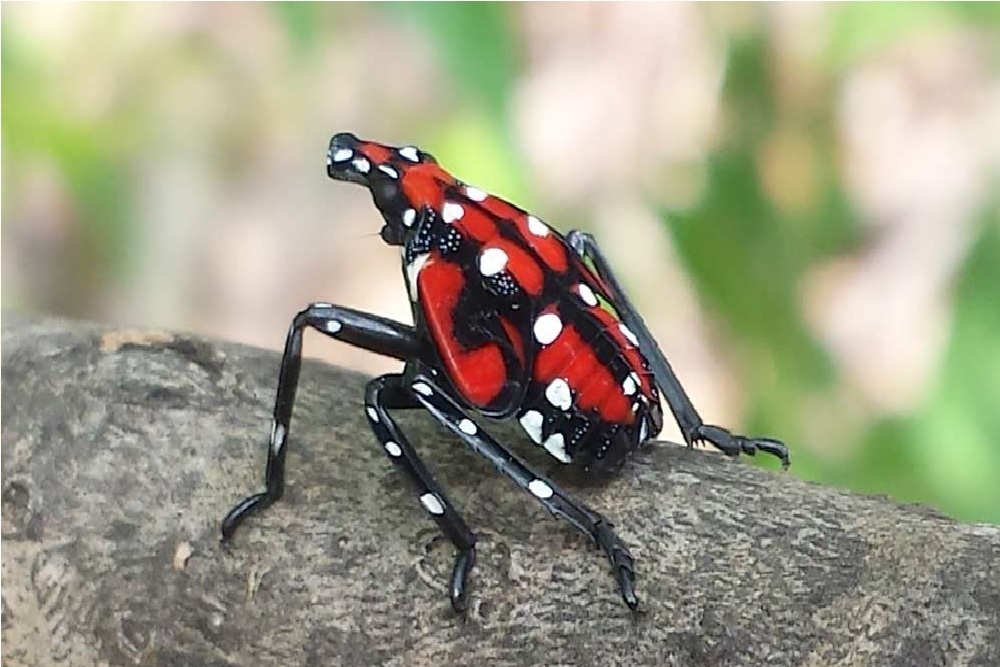Michigan, Department of Environment, Great Lakes & Energy issued the following announcement on Nov. 16.
Freight carriers, warehouse workers, and delivery drivers should be on the lookout
The Michigan Department of Agriculture and Rural Development (MDARD) is asking freight carriers, warehouse workers and delivery drivers to be on the lookout for invasive spotted lanternfly after the United States Department of Agriculture (USDA) confirmed dead spotted lanternfly insects were found in Michigan in recent weeks. While the specimens found were dead, these cases demonstrate one of the many ways this insect could find its way into the state. There is no evidence of established populations of spotted lanternfly in Michigan.
“Thanks to the collective efforts of MDARD inspectors, alert business owners and USDA, we were able to intercept these shipments. These detections showcase the importance of being on the continual lookout for invasive species,” said Robert Miller, MDARD’s Invasive Species Prevention and Response Specialist. “This a great example of the public and government agencies working together to keep out unwanted pests and protecting our prized natural resources.”
Invasive species are those that are not native and can cause harm to the economy, environment, or human health.
First found in the United States in 2014 in southeastern Pennsylvania, spotted lanternfly has been spreading rapidly across the nation. Infestations have been confirmed in Delaware, Virginia, New Jersey, New York, Maryland, West Virginia, Connecticut, and Ohio. If introduced, spotted lanternfly could seriously affect Michigan’s agriculture and natural resources. This insect could damage more than 70 varieties of crops and plants including grapes, apples, hops, and hardwood trees.
Spotted lanternfly causes direct damage by sucking sap from host plants and secreting large amounts of a sugar-rich, sticky liquid called honeydew. This honeydew and the resulting black, sooty mold can kill plants and foul surfaces. The honeydew often attracts other pests, particularly hornets, wasps, and ants, affecting outdoor recreation and complicating crop harvests.
MDARD is asking people involved in transporting and handling goods or freight to become familiar with identifying spotted lanternfly adults and egg masses, as both could become attached to vehicles or goods themselves and unintentionally be brought into Michigan.
Spotted lanternfly adults are roughly one inch long. Their folded wings are gray to brown with black spots. Open wings reveal a yellow and black abdomen and bright red hind wings with black spots transitioning to black and white bands at the edge. Egg masses resemble old chewing gum, with a gray, waxy, putty-like coating.
If you find a spotted lanternfly egg mass, nymph or adult, take one or more photos, make note of the date, time and location of the sighting, and report to the Michigan Department of Agriculture and Rural Development, MDA-Info@Michigan.gov or call MDARD’s Customer Service Center, 800-292-3939. If possible, collect a specimen in a container for verification.
For additional information on identifying or reporting spotted lanternfly, visit Michigan.gov/SpottedLanternfly.
Original source can be found here.

Source: Michigan, Department of Environment, Great Lakes & Energy




 Alerts Sign-up
Alerts Sign-up